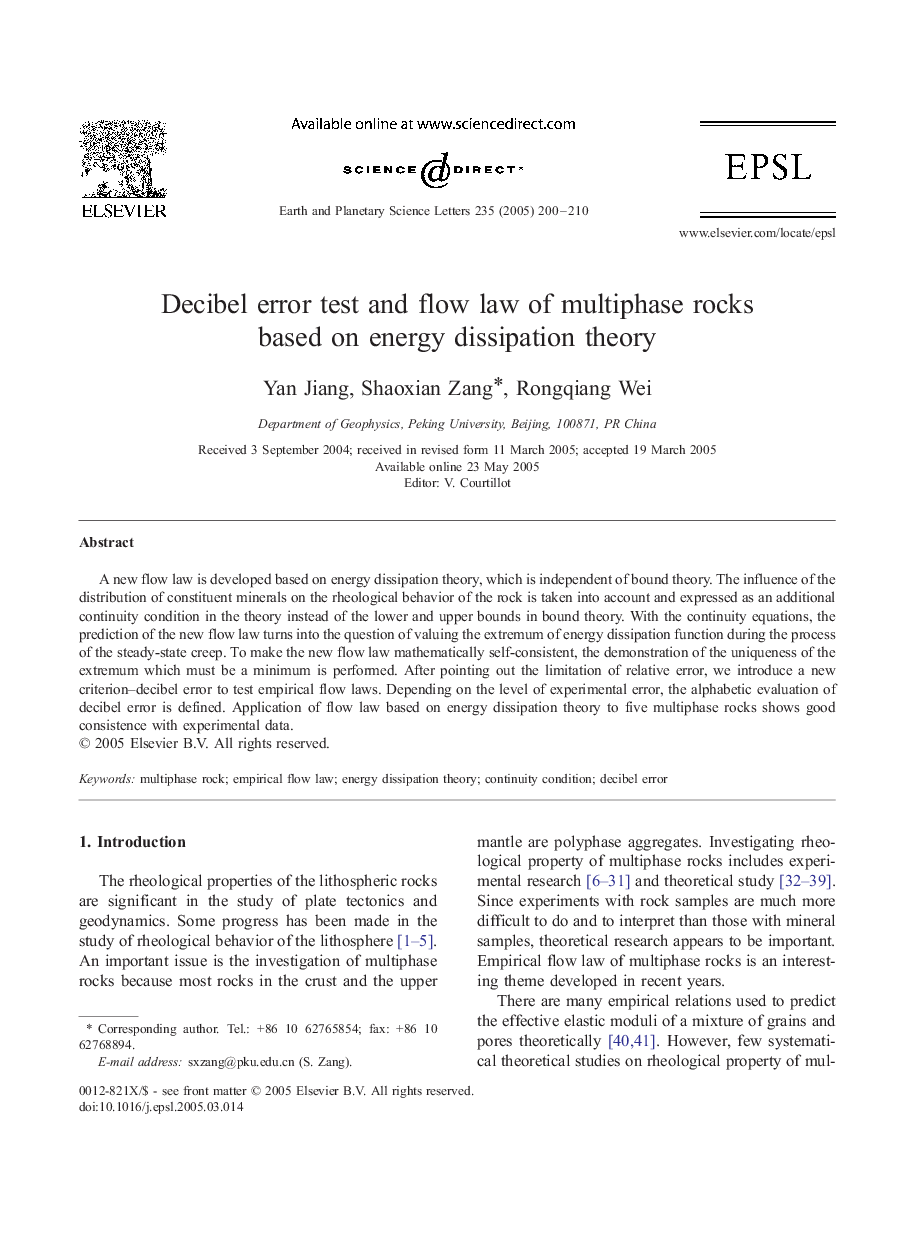| Article ID | Journal | Published Year | Pages | File Type |
|---|---|---|---|---|
| 9522322 | Earth and Planetary Science Letters | 2005 | 11 Pages |
Abstract
A new flow law is developed based on energy dissipation theory, which is independent of bound theory. The influence of the distribution of constituent minerals on the rheological behavior of the rock is taken into account and expressed as an additional continuity condition in the theory instead of the lower and upper bounds in bound theory. With the continuity equations, the prediction of the new flow law turns into the question of valuing the extremum of energy dissipation function during the process of the steady-state creep. To make the new flow law mathematically self-consistent, the demonstration of the uniqueness of the extremum which must be a minimum is performed. After pointing out the limitation of relative error, we introduce a new criterion-decibel error to test empirical flow laws. Depending on the level of experimental error, the alphabetic evaluation of decibel error is defined. Application of flow law based on energy dissipation theory to five multiphase rocks shows good consistence with experimental data.
Keywords
Related Topics
Physical Sciences and Engineering
Earth and Planetary Sciences
Earth and Planetary Sciences (General)
Authors
Yan Jiang, Shaoxian Zang, Rongqiang Wei,
